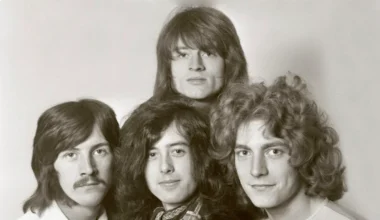The debate over whether The Beatles are the greatest band ever has lasted over sixty years, a testament to their influence and continued relevance. Some argue the band is overrated, while others insist that they deserve every bit of their iconic status. Regardless of where people fall on the spectrum, The Beatles’ lasting impact extends beyond their sound, shaping the music industry and international pop culture in ways that still resonate.
One reason many feel The Beatles earned their legendary status is the breadth of their influence—not only in music but in their role in transforming how British bands were received in America. Albums like Revolver, Abbey Road, and Sgt. Pepper’s Lonely Hearts Club Band shifted musical landscapes, but it was their journey into the American market that truly paved the way for British acts across the board.
Their manager, Brian Epstein, took calculated steps to ensure the band’s American debut would set them apart. Billy J. Kramer, a contemporary of The Beatles, recalled joining Epstein in the U.S. as he prepared for the band’s arrival: “I came over with Brian Epstein on a little promo tour in November 1963. Brian was setting things up for when The Beatles came over in February.”
Epstein’s preparations were meticulous, with Kramer noting, “He had a suite at the Waldorf Astoria. There were lots of meetings with people coming and going. There wasn’t much going on—Cliff Richard had been to America and hadn’t got anywhere. I felt at the time that it would be a difficult market to break, but if anybody could, it would be The Beatles.”
Thanks to Epstein’s approach, The Beatles changed the blueprint for British bands in the U.S., establishing a framework that future artists would follow.
While The Beatles’ influence is clear, some might be surprised at the extent to which modern musicians continue to feel that impact. Green Day’s Billie Joe Armstrong, for instance, recalls writing the 1995 song “Insomniac” and feeling echoes of The Beatles’ style in his work.
Armstrong explained, “The song is such a dark horse. I had just gotten some recording equipment, and I came up with the riff while experimenting: ‘Oh, this is cool. It almost sounds like a harder Beatles song, like My Guitar Gently Weeps.’”
At the time, Armstrong was in a turbulent period following Green Day’s explosive success with Dookie. Like The Beatles, Green Day struggled to balance their punk roots with a newfound mainstream spotlight.
Armstrong opened up about the song’s themes, saying, “The song is about methamphetamine, not being able to sleep, and staying up all night. It was something that was creeping into our punk scene at the time, and I definitely did my experimenting with it. It’s such an evil drug.”
In the end, The Beatles’ legacy endures not just in sound but in the unique path they forged for British musicians. Their innovation and global impact continue to inspire and resonate with artists across genres and generations.







